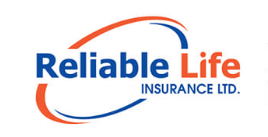FAQ
Introducing Reliable Nepal Life Insurance Limited
Reliable Nepal Life Insurance Limited is a life insurance company, duly approved by the Insurance Board and Government of Nepal. The company is promoted by the eminent group of economists, industrialists, bankers and reputed professionals, and it is being led by team of experienced workforce. It is in market to serve the customers by offering unique products with leverage on cutting edge technology and being customer-oriented in the approach.
What is life insurance?
Life insurance is a protection against financial loss that would result from the premature death of an insured. The named nominee/beneficiary receives the proceeds and is thereby safeguarded from the financial impact of the death of the insured. The death benefit is paid by a life insurer in consideration for premium payments made by the insured. The goal of life insurance is to provide a measure of financial security for your family after you die.
What is death benefit?
The death benefit is the amount of money the insured’s nominee/beneficiaries will receive from the insurer upon the death of the insured.
Why should I consider life insurance?
No-one wants to think about their own death, let alone plan for it. However if you have a life insurance policy, should the worst happen, your family can be protected from financial burden. Further there will be tax rebate up to Nrs.20,000/- per annum at present.
Can I hold multiple life insurance policies?
It’s possible to hold multiple life insurance policies and in some cases this might be worth considering. If, for example, you have an existing policy but you find you need more cover, you may find that the most efficient way to arrange this is by taking out an additional policy.
What’s endowment life insurance?
An endowment policy is essentially a life insurance policy which, apart from covering the life of the insured, helps the policyholder save regularly over a specific period of time so that he/she is able to get a good amount on the policy maturity in case he/she survives the policy term. This maturity amount can be used to meet various financial needs such as funding one’s retirement, children’s education and/or marriage or buying a house.
What’s term life insurance?
Term cover is the most common form of life insurance and provides a lump sum payout to the beneficiary if the insured die in the course of the policy.
What’s whole of life insurance?
Whole of life cover is guaranteed to pay out when you die, meaning that it can be called life assurance. Because of the guarantee, it’s more expensive than term cover.
What’s whole of life insurance?
Whole of life cover is guaranteed to pay out when you die, meaning that it can be called life assurance. Because of the guarantee, it’s more expensive than term cover.
How do I decide the length of the term?
You’ll need to consider exactly what you want it for. Maybe you want to make sure the policy lasts as long as you are financially productive and you can receive a sum as payout after your retirement or perhaps linked to your children’s age, so that it won’t expire until they have finished school, turned 18 years old, or finished university.Of course, your own age will have an impact on your decision.
How much cover do I need?
This will depend on your circumstances and what you want cover for. It totally depends on your future plan, size of your family, cover to your debt, your income etc. Usually it is advised to have cover 10 times of your annual income. The income includes various sources that you earn income from, like: incomes from business, Salary, rent, pension, income from agriculture and so on.
How much will I have to pay?
The amount to be paid will vary according to different insurers and products, but the typical factors considered by life insurers are:
• Sum assured (Insurance Amount)
• Length of policy term
• Cover and options bought
They will also consider person-specific factors such as:
• Age
• Height and weight
• Medical history
• Family medical history
• Occupation
• Lifestyle choices e.g. intake of alcohol and tobacco etc.
What if I already have insurance through my employer?
Life insurance is offered as a benefit by some employers and is often known as ‘death in service’ cover. Make sure a potential payout would provide the level of cover your dependents need and remember that, if you leave or lose the job, the cover will stop.
Will existing medical conditions affect my policy?
This will vary between insurers, but if you have an existing medical condition you’re more likely to have a higher premium or may find it harder to get insured. It’s also possible to arrange a policy that excludes the pre-existing condition from cover.
Who benefits from my life insurance?
This is completely dependent upon whom the policyholder defines as nominee or beneficiary.
What’s a life table?
Life tables – also known as mortality tables or actuarial tables – show what the probability is that a person of a particular age will die before their next birthday and are the tools that the life insurance industry are based on. Using such tables, inferences can be determined regarding the probability of surviving that year of age, and the remaining life expectancy for people at different ages.
What is insurance regulation?
Insurance regulation refers to the government overseeing the insurance market to ensure fairness and professionalism among those working for the insurance industry, to prevent the market from collapsing, and to provide parental guidelines to the insurers and insured. Beema Samiti (Insurance Board) is an autonomous body, established to develop,systemize,regularize and regulate the insurance business in Nepal under Insurance Act, 1992.
 ENG
ENG
 NEP
NEP

